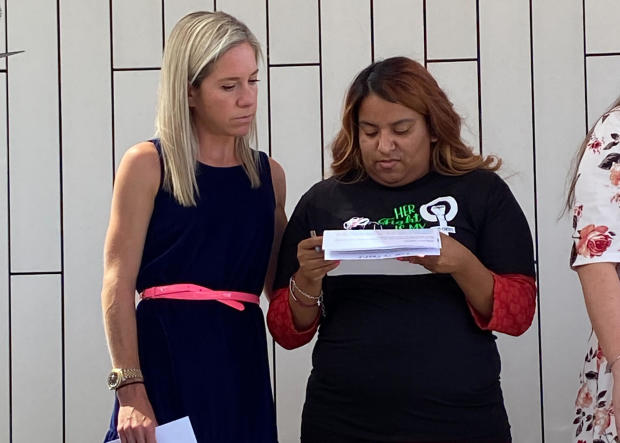Texas Supreme Court hears arguments to clarify abortion ban
Austin, Texas — A lawyer representing 20 women and two doctors argued before the all-Republican Texas Supreme Court on Tuesday that women have been denied lifesaving care under the state's strict abortion law as they seek to clarify what qualifies as a medical exception.
"We are just seeking clarification on what the law aims to do," said Molly Duane, a lawyer for the Center for Reproductive Rights, which brought the lawsuit.
Five women who were denied abortions under the state filed the lawsuit in March, and they were later joined by 17 other plaintiffs, including two doctors. The lawsuit, which was brought by the Center for Reproductive Rights, is believed to be the first to be brought by women who were denied abortions after the Supreme Court overturned Roe v. Wade last year.
Unlike other legal challenges to abortion laws, this case does not seek to overturn Texas' ban but rather to clarify what qualifies as a medical exemption. But Supreme Court Justice Brett Busby said the job of the court is to "decide cases," and not to "elaborate and expand laws in order to make them easier to understand or enforce."

Beth Klusmann, a lawyer for the state, argued Tuesday that the women did not have the standing to sue, suggesting that the women should have instead sued their doctors for medical malpractice.
Duane argued on Tuesday that because the law is unclear, the women were denied lifesaving care, and that the state's interpretation means that "women would need to have blood or amniotic fluid dripping down their leg before they can come to court."
Earlier this year, a judge in Austin ruled that women who experience pregnancy complications are exempt from the state's abortion ban. Texas Attorney General Ken Paxton appealed the ruling, bringing the legal challenge to the state Supreme Court.
In August, Travis County Judge Jessica Mangrum placed an injunction on the law, ruling that the plaintiffs faced "an imminent threat of irreparable harm under Texas's abortion bans. This injunction is necessary to preserve Plaintiffs' legal right to obtain or provide abortion care in Texas in connection with emergent medical conditions under the medical exception and the Texas Constitution."
The injunction was put on hold when Paxton appealed.
- In:
- Texas
- Abortion
Disclaimer: The copyright of this article belongs to the original author. Reposting this article is solely for the purpose of information dissemination and does not constitute any investment advice. If there is any infringement, please contact us immediately. We will make corrections or deletions as necessary. Thank you.





